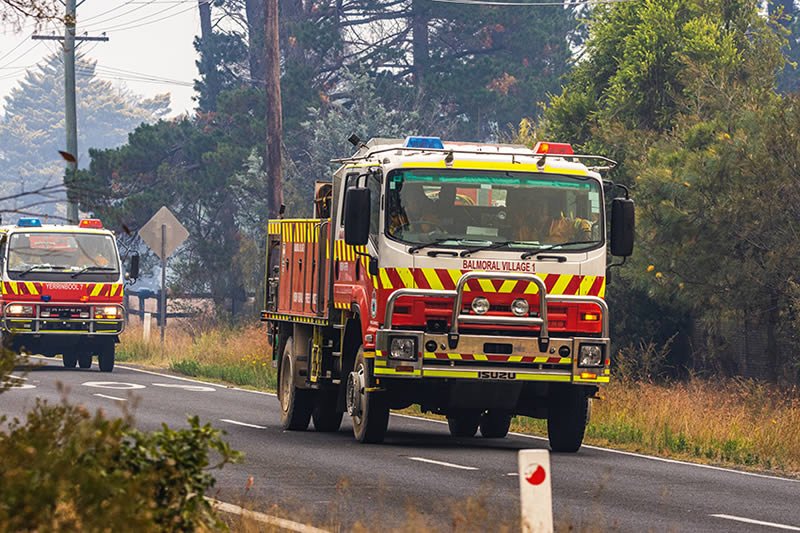Disasters and relief efforts bring their own employment issues. By Emma Watt
Many employers have been touched by the fires around the country. Some employers have been directly affected, either by losing worksites, or having to evacuate. Others have released employees to volunteer for emergency response.
Standing employees down
Firstly, if the business, or a part of the business, can’t operate because of a business interruption, under the Fair Work Act 2009 employees may be stood down without pay. A business interruption is “a stoppage of work for any cause for which the employer cannot reasonably be held responsible”, and would include the situation where the workplace can’t function because it’s been evacuated, or it’s been destroyed.
Stand down without pay might also be warranted where it is unsafe or unreasonable to require employees to perform their normal work due to inclement weather (extreme heat or high winds included), and there is no other work that could reasonably be performed.
The employer needs to discuss the situation with each employee and notify them of the stand down. It is good practice to notify in writing, and to provide the following information:
- Source of the right to stand down;
- Reason for the stand down;
- Expected duration of the stand down;
- How often the stand down will be reviewed; and
- Whether the period of the stand down will break continuity of service, and whether the period will count as service.
You could also, if appropriate, allow employees to take accrued annual leave or long service leave, or allow them to work from home.
EMPLOYEES WHO VOLUNTEER FOR EMERGENCY RESPONSE
Under the National Employment Standards, an employee is entitled to be absent from employment when engaging in an eligible community service activity. “Eligible Community Service activities” include voluntary emergency management activity.
These activities cover employees who are also volunteer members of the various State Emergency Services, and volunteer fire brigades. Any membership-based organisation that has a role in coping with emergencies or natural disasters would count – generally speaking, firefighting, civil defence or rescue organisations.
The employee’s participation in the activity must be voluntary. Leave to undertake a voluntary emergency management activity is unpaid under the NES, but State or Territory legislation might require payment of ordinary wages – as is the case in Queensland, Tasmania & Western Australia.
The payment of a gratuity or honorarium does not prevent the activity from being considered ‘voluntary’.
This could be relevant given the Federal government’s decision to compensate some volunteers for requirements to be away from their jobs on unpaid leave for a significant period of time during the ongoing 2019/20 fire season.
What is covered by the leave?
An employee may take community service leave for:
- any period in which they engage in an eligible community service activity;
- any reasonable travelling time associated with the activity; and
- any reasonable rest time immediately following the activity.
Can an employee insist on taking leave to undertake a voluntary activity?
Under the NES, an employee may take this type of leave if it is reasonable in all the circumstances. The employee should consult with you prior to committing to undertake a voluntary activity, to check that you will allow them to take the leave, although this may not always be possible.
If, for example, you already have several people off work, and it’s your busy season, then it may be reasonable for you to refuse permission for the employee to take the leave. It is certainly worth discussing this with the employee and coming to a mutually acceptable arrangement.
Can I dismiss or discipline someone for taking this type of leave if I haven’t agreed to it?
Federal, State and Territory laws may proscribe dismissing or disciplining someone in certain circumstances surrounding voluntary emergency management activities. Seek specific advice if you are about to embark on this course of action!
Can I require an employee give me evidence of their need to take community service leave?
Yes, you can. Employers are entitled to require that an employee provide reasonable evidence that they are engaging in the relevant activity, and you can also require that an employee notify you that they will be taking leave. This might be in the form of an email, or a letter from their Unit or Brigade management team.
Interaction of Community Service Leave and Annual Leave
If an employee undertook volunteer emergency management activity during annual leave, the employee is entitled to be recredited the annual leave otherwise taken.
What about Defence Reserve Leave?
Employees who are members of the defence reserve are entitled to take defence service leave under the Defence Act 1903 (Cth) and the Defence Reserve Service (Protection) Act 2001 (Cth). This is not covered by the NES, but nonetheless, the obligation exists. There is no maximum or minimum entitlement to this type of leave, but if you are aware that an employee is a member of the defence reserve, it would be wise to require them to give you as much notice as possible of dates they will be absent from work.
Usually employers are not required to pay employees who are on defence service leave, however, the time away would count as service, and entitlements such as personal/carer’s leave and annual leave would continue to accrue.
The information in this article is general, and you should always check the provisions of any applicable enterprise agreement and seek advice about your specific circumstances.
Emma Watt is an independent industrial relations consultant who has, for more than 20 years, provided advice and assistance to employers in the timber industry. She has also worked as an unfair dismissal conciliator with the Fair Work Commission. Emma is very keen to ensure that employers know their rights and obligations, so they can sleep well at night!
Image: The NSW Rural Fire Service and other country fire authorities rely on volunteers. Here trucks were operating in December at Buxton for back burning operations on the Green Wattle Creek fire. Photo by Petar B photography/Shutterstock












